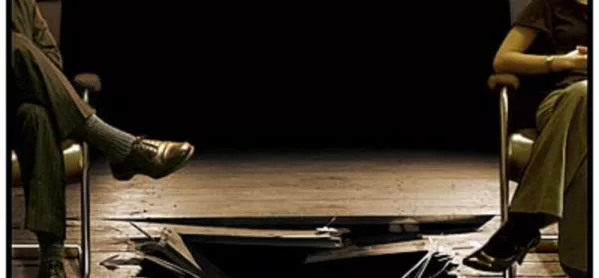In the dog days between Christmas and New Year, Harry Mount wrote a j’accuse piece in The Telegraph blaming child-centred education for creating a generation of university undergraduates who cannot bear to be corrected for either behaviour or grammar, and who exist in a permanent state of hypersensitivity, objecting to anything that might offend their feelings.
The object of Mount’s ire is the campaign to remove Cecil Rhodes’ statue from Oriel College, Oxford; but he links this with “no-platform” campaigns, such as that against Germaine Greer, which sought to stop her speaking at Cardiff University because some students have been offended by her views on transexuals.
Mount’s concern is not about the broader implications - whether free speech includes the right to offend; how universities toggle between protecting and challenging students; even how to handle Britain’s mixed imperial heritage. He worries that universities are reaping the whirlwind of 20 years of child-centred education, producing children who have been mollycoddled by parents and spoonfed by teachers.
He confides that he personally wasn’t offended by the statue as an undergraduate 20 years ago. By implication, something must have gone wrong in the upbringing of the present generation of undergrads.
There is an important issue here, one well developed by Greg Lukianoff and Jonathan Haidt in a recent article in The Atlantic magazine. They identify a movement in US universities, driven by students, to scrub campuses clean of words, ideas and subjects that might cause discomfort or give offence. Calls have been made for “trigger warnings” to alert students to things in seminars or set texts that might give offence, or constitute “micro-aggressions”. Students might, for example, opt out of reading The Great Gatsby, on the grounds that it portrays misogyny and physical abuse.
The movement appears to be focused on emotional wellbeing, creating safe spaces where young people are shielded from words and ideas that might make them uncomfortable. But seen differently, it amounts to a version of political correctness, creating a campus culture devoted to policing speech and coercing speakers; even threatening scholarship and the raison d’être of universities. The authors cite psychologists who identify a link between overprotection of young people and later onset of depression and anxiety.
They agree with Mount that the “flight to safety” dates from the 1990s, and the convergence of child-centred schooling with increasing concern for protecting children from all kinds of hazard - from playground design to stranger danger. They place the blame on the way children have been brought up in recent decades (with the added pressures of social media) - and universities are having to deal with the consequences.
There are two illuminating omissions in Mount’s analysis. First, concerns about the safeguarding of children in the past few decades weren’t, it now turns out, entirely misplaced. Second, since universities have been forced into the marketplace, fee-paying undergraduates can’t be blamed for behaving as consumers with choice, rather than as beneficiaries of the state’s largesse. The whirlwind that universities are reaping stems, in part, from the monetisation of higher education.
Dr Kevin Stannard is the director of innovation and learning at the Girls’ Day School Trust. He tweets at @KevinStannard1
Want to keep up with the latest education news and opinion? Follow TES on Twitter and like TES on Facebook





